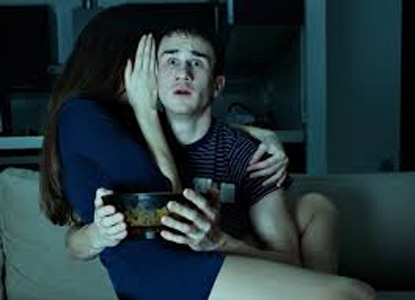Is there a psychology of dystopian stories and why is it that they may be on the rise?
 The word dystopian refers to an imaginary place where things have gone bad in a post-apocalyptic future. People live a dehumanized life and. Rulers are often uncaring, totalitarian and inhumane. Often it is set in a time that has followed an environmental disaster or societal collapse. The word comes from the Greek cacotopia or anti-utopian.
The word dystopian refers to an imaginary place where things have gone bad in a post-apocalyptic future. People live a dehumanized life and. Rulers are often uncaring, totalitarian and inhumane. Often it is set in a time that has followed an environmental disaster or societal collapse. The word comes from the Greek cacotopia or anti-utopian.
The story might begin with a resistance movement that leads to change.
H. H. Wells, George Orwell and Aldous Huxley have all written dystopian novels. There has been a revival or renewed interest in dystopian themes which some say come under the genre of science fiction. A genre is a category that applies to the marketplace. Genre means there are implied rules of engagement that one follows when writing in a particular type of story. If you disregard them you run the risk of missing the mark with the viewer/audience. The audience knows the rules even though they may not be aware of it. I would say dystopian is a sub-genre that could fall under thriller and or fantasy. These stories still follow the classical story structure.
The question needs to be asked why one feels compelled to write this kind of story and what makes it resonate with the audience.
The answer lies in the way it taps into anxieties about the future, inequalities and the polarization that results. If there ever was a time when this type of feeling is being evoked in the global and our national area, you can expect that this type of story will be getting a lot of engagement.
These stories are a way to anticipate or project into the future. They can foreshadow a course of events that could ensue if we do not change our ways from the current events and status quo. Films and novels that reach a large audience have the capacity to move the masses. Therefore, they provide ways to get the message out there. They get people thinking and eliminate the anxiety we may feel by just doing nothing or feeling hopeless. These stories also feed the need to escape from reality even though it may be trying to send a message about reality.
In some ways, people find comfort in dystopian novels and films especially if the end includes a revolt where the ones being oppressed win back the power and or fight back.
You could call it cultural therapy because the stories reflect the culture in which we live. The goal is to shed light on and help us understand and/or make meaning from the mess in which we find ourselves.
It is also sometimes more powerful to couch a message in a story rather than hit someone over the head with something that one may not be ready to hear. When you hit too close to home, it can be very disturbing. That is why it is important to create a character arc and resolution that is more uplifting than the theme, as it gives us hope… in what we can perhaps call these dystopian times.
Here is a list of best dystopian novels for adults and films.
One of my favorites is Hunger Games. If you have a favorite dystopian novel or movie please share it and what you like about it.

 Where your stories come from
Where your stories come from